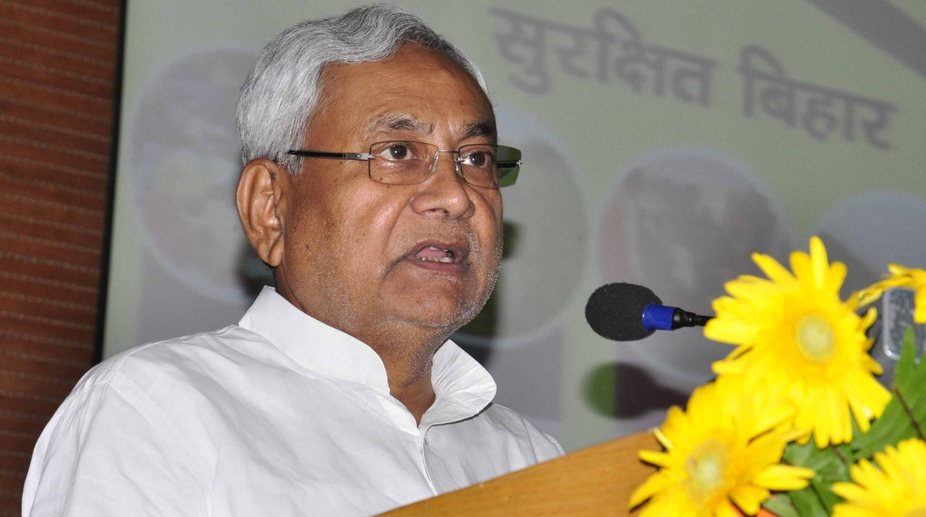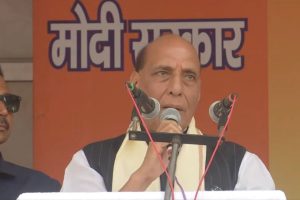It is often said there are no permanent enemies or friends in politics but only permanent interests. Bihar chief minister Nitish Kumar has proved this once again. He parted ways with his foe-turnedfriend-turned foe RJD chief Lalu Prasad Yadav on Wednesday. He retained power by getting support from friend-turned-foe-turned-friend the BJP.
The two parties had been in alliance until 2013 when Kumar walked out of the NDA protesting against Narendra Modi’s projection as the NDA prime ministerial candidate.
It was Nitish who had stitched up a Grand Alliance with the Rashtriya Janata Dal and Congress in Bihar in 2015 that delivered a crushing blow to the BJP in the Assembly polls. In the 243-member Bihar Assembly, the RJD has 80 MLAs, the Congress 27 and the CPIML has three.
It was not surprising that the Grand Alliance much touted by the opposition as a model to be replicated at the national level did not last the full term; it was born out of political opportunism and there was mistrust and suspicion among the coalition partners – the JD (U), RJD and the Congress.
It was only a question of when and not why. And it has happened in just two years.
The excuse, of course was the corruption of the Lalu family. Ending the ‘will he, won't he’ dilemma Nitish Kumar parted company with Lalu and joined hands with the BJP to retain his chief ministership on Thursday. In just 40 hours, the whole scripted drama was played out. Justifying his opportunism, Nitish Kumar claimed after the swearing in ceremony, "Whatever decision we have taken will be in the interest of Bihar and of its people. It will ensure development and justice." Why did Nitish choose to embrace the BJP?
He had been comfortable with the BJP all along. Even after Godhra, he remained with the NDA in 2002. It is not surprising that he chose to go back because in his calculations the opposition had no narrative to challenge Narendra Modi and felt it was better to join Modi than fight him. Secondly, he has also realised that the opposition was not going to project him as a prime ministerial candidate.
Failing to bag this honour, he wasn’t willing to become subservient to Lalu who was seeking to widen his support base through Mayawati and Akhilesh. Thirdly, Nitish saw that continuing in the Grand Alliance was not giving him any benefits at the state or at the national level. However, experts feel that while Nitish might have gained for the time being, the future is uncertain. Secular voters who opted for the Grand Alliance are disappointed that he has chosen to go with the BJP. The opposition respected him but this has now eroded entirely.
On the other hand, the BJP sees him as a necessity for the next poll but there is no trust between the two. What does it mean at the national level? Bihar is an important state politically and the impact will be felt surely when one of the nonBJP parties of which the JD (U) was an important constituent parts company to join the saffron ranks. Opposition unity, carefully built up to check the BJP, may now be a pipedream after the departure of the JD (U).
The Congress could be a minor player in Bihar politics, but it still was that critical glue which held the alliance together. The party had suffered a string of electoral reverses after the 2014 Lok Sabha elections and being part of the winning alliance in Bihar had brought some cheer. Failure of the Bihar experiment will be seen as proof of the Congress' growing inability to lead an alternative front at the Centre.
The Bihar effect echoed in Gujarat where six Congress MLAs quit this week. Secondly, the BJP is in a win-win situation. It has successfully broken the Grand Alliance. It is indeed sweet revenge for the BJP as Bihar was the first loss in 2015 for Modi while Delhi was a minor blip.
It has gained the second largest state after UP now. JD (U) may be the bigger partner in the newly formed alliance but JD (U) may be rendered politically obsolete by BJP. The BJP of today is different under Modi’s leadership and much more dominant than earlier. Also the number of BJP-ruled states has gone up to 18 now while the Congress is ruling only in five states.
Thirdly, the BJP calculates that with a good showing in Bihar and UP, Modi is bound to get re-elected in 2019, The UP Assembly polls had given a big moral boost to the BJP and now with the new political realignment, Bihar too could come under its sway. Fourthly, the BJP will improve its position in the Rajya Sabha, where it is in a minority, with the support of the JD (U) and be better placed to face the opposition onslaught on passage of every Bill. In the Lok Sabha too its numbers will go up.
A disappointed coalition partner Rahul Gandhi said in frustration "He (Nitish) had joined hands with us in the anti-communal fight, but Nitish Kumar, for his personal politics, joined hands with those against whom he had fought."
In short, the Bihar developments have strengthened Modi and weakened opposition unity. As for Nitish, the jury is out.











